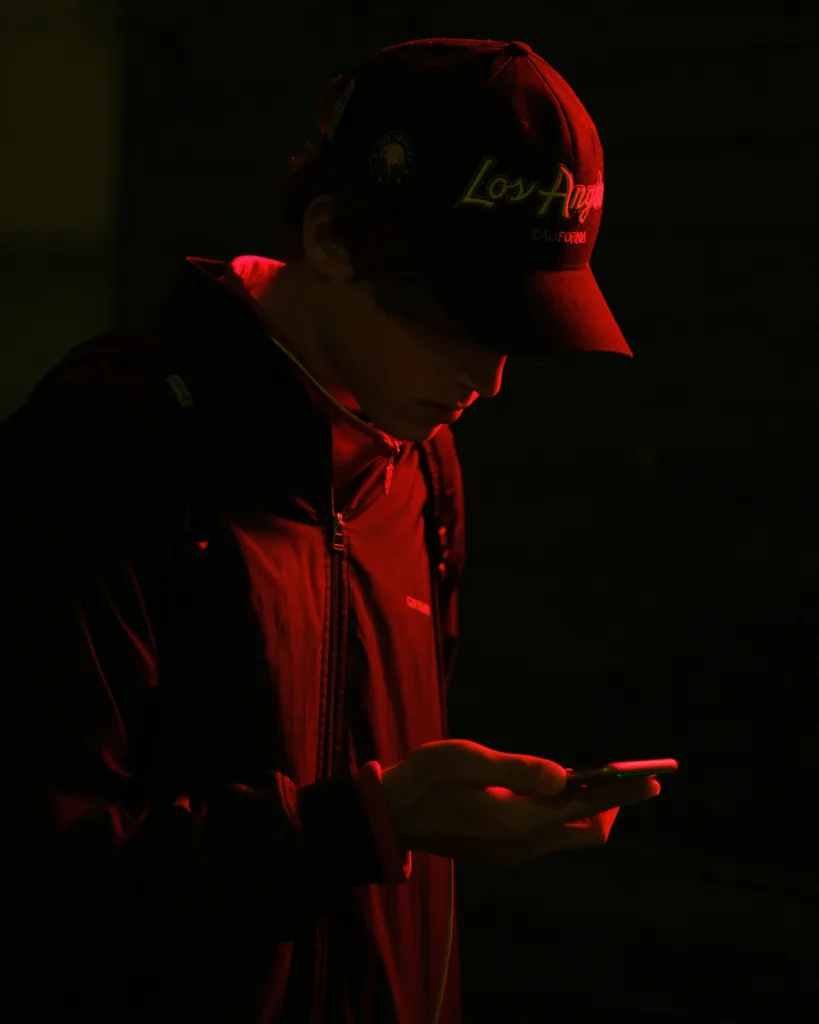
The warning was being raised years ago. . . at just about the time more and more of us – young and old alike – were wandering onto the digital frontier. Sadly, that wandering was mostly mindless, with little-or-no thought given to both the subtle and real dangers that face us human beings as we tend to be spending our days wandering around thoughtlessly. . . not with our eyes focused on the path, but stopping halfway down to our feet to focus on our smartphone screens. I was reminded of this the other day when I pulled up behind a school bus letting off some teens at their stop. Over the curb and on their way home they all went, each one never looking up from the device in their hands.
Based on having heard a strong history of media literacy criticism from those who prophetically implored us all to wade rather than dive into all developing technologies, we here at CPYU began deliberate efforts to encourage folks to engage in digital discipleship back in the mid-2000’s. It was guys like Ellul, McLuhan, Postman, Gerbner and others who over the decades were warning us to slow down and think ahead. It was McLuhan who said, “We become what we behold. We shape our tools, and thereafter our tools shape us.” Perhaps “mis-shape” is a better option.
Now, almost 20 years after the advent of the iPhone, even the doubters would be hard-pressed to deny that McLuhan and so many others were actually right. Just ask any school teacher. . . or even a youth pastor! Sadly, we’re not done discovering everything they were so right about, as each new little bit of research data and even our own ever-increasing mountain of anecdotal stories about evidence from the lives of others and ourselves gets piled on the growing amount of research pointing to the fact that there are indeed dangers on the digital frontier. Have you taken the time to listen to Jean Twenge, Jonathan Haidt, Nicholas Carr, Douglas Rushkoff, Cal Newport, and a host of others who are taking the conversation further these days?
One area of great concern regards how engagement with our digital devices has fueled a decline in reading. We’ve been encouraging parents and youth workers to get students engaging with paper rather than smartphone-based Bibles. We’ve encouraged the use of paper books instead of screen-based reading. There’s so much more we could mention here, but I want to pass on some thoughtful stuff from Wessie Du Toit that appeared his June/July 2025 First Things article, “The Future of Reading.” I’ve let these words marinate in my mind ever since reading them a few months ago, and I’ve found that many are worth sharing here. If you would, read through some of these excerpts carefully, taking the time to consider what changes you might need to make in your personal life, your family, and your ministry. . .

This great reading boom started going into reverse with the arrival of television in the mid-twentieth century. Today, the decline is accelerating. The most startling changes are observable in higher education, including at prestigious universities. College students have an unusual amount of time to read and encouragement to do it, allowing them to establish intellectual habits for later life. For a number of years, though, I’ve heard professors complain that students can no longer cope with their reading assignments. Last fall, a widely shared report in The Atlantic, by Rose Horowitch, highlighted the problem at elite colleges in the United States. Academics say that, for the current generation of students, “the reading load feels impossible.” They have difficulty concentrating for extended periods, following plotlines, and registering details. They arrive with “a narrower vocabulary and less understanding of language than they used to have.” Some were never required to finish an entire book in high school. . .
The decline of reading in our day represents a move toward the historical norm, not away from it. The new element is the circumstances in which the decline is happening. The effect of networked digital devices is brutally obvious. During the 2010s, readers seemed to share an almost universal realization that to read in a deep and sustained way required of them more effort than it once had. We felt our brains being rewired in real time, our attention becoming weaker even as powerful new demands were placed on it. Social media platforms are exciting centers of discourse, the lira popular of our time. They are also akin to a drug epidemic, with interfaces designed to hijack the limbic system and make the mind dependent on their rapid patterns of stimulation. Nor is this the only way smartphones override deeper thought processes. Their constant proximity means that social networking, entertainment, and the demands of work are not so much in your pocket as always in the back of your mind. In France, a recent study found that half of young readers now engage with other media, such as sending messages or watching videos, while they read. . .
But we need to look beyond a simple economics of attention to understand why reading is embattled today. For one thing, written culture is part of the content overload. In terms of sheer volume of words and sentences, we probably read more than ever—the problem being that text messages, emails, and social media posts calibrate our minds to the fragmented and ephemeral. . .
At Substack, a platform that allows writers to build audiences through subscriptions, high output is regarded as a good strategy for growth, leading to a glut of blogs and essays that ultimately devalue their own art. . .
This raises the question of the wider consequences of the decline of reading. Adam Garfinkle is among those who argue that it is undermining the political culture on which democracy depends, most notably by fueling the growth of irrational populism. Garfinkle is especially concerned about the loss of “deep literacy,” a competence earned through careful engagement with longer texts, whose benefits include “nurturing our capacity for abstract thought, enabling us to pose and answer difficult questions, empowering our creativity and imagination, and refining our capacity for empathy.” The transition from deep literacy to social media, as Garfinkle portrays it, is driving us into mental prisons of unexamined prejudice and tribal emotion, where we are prey to manipulation and incapable of independent thought. . .
Developing a reading habit will probably require even more discipline in the future, as it falls further out of step with the surrounding culture. If new communication technologies place less emphasis on written messages—replacing them, for instance, with audio formats—many people will do no reading at all on a regular basis. But it is precisely this effort, and this sense of cultivating a rare faculty, that will give reading a sacred quality for those who commit to it. . .
The ongoing saturation of life by media will no doubt influence the kinds of literature that people choose to read, and to write. The provision of information will become less important; style, charisma, and richness of thought will become more so. If writers no longer need to appeal to a wide audience, then literature could well become more esoteric in style and more elitist in outlook. . .
Nor should we overlook the ancient association of literacy with religious functions. That reading enables a kind of communion with ancestors is an uncanny detail we tend to overlook but which may appear more significant when fewer people can do it. Assuming such positions will not be filled by the descendants of ChatGPT, familiarity with scriptures and histories could again be regarded as a priestly calling. Alternatively, the technological society may result in a perception of reading as entirely obsolete, both as a skill and as a mark of status. . .
So, what are we going to do about this? In our own lives? In our schools? In our families? In our churches? In our youth groups?
I hope that we can live counter-cultural lives, calling ourselves to detach from our devices for significant amounts of time, using them only for what’s necessary, and then redeeming the time to develop our hearts, minds, souls, and strength through reading. . . with the written revelation we’ve received from God at the top of the list.
Great article Walt. Over 40 years ago I taught my four sons this little saying. “Readers are leaders “ My 7 grandchildren now come up to me and say, “Readers are leaders, right Grandpa?” Yes they are. You are hard pressed to find any leader who isn’t an avid reader.